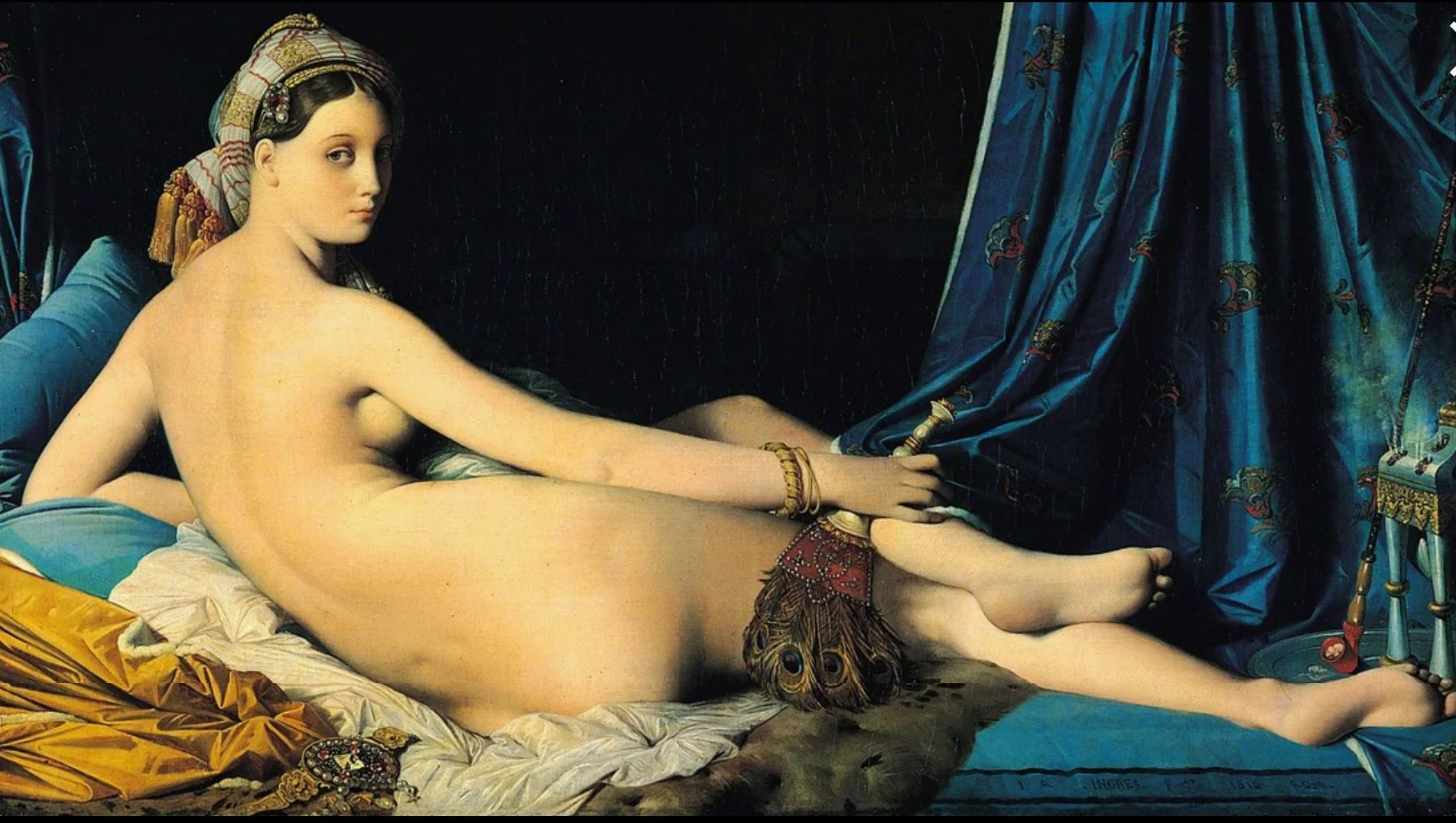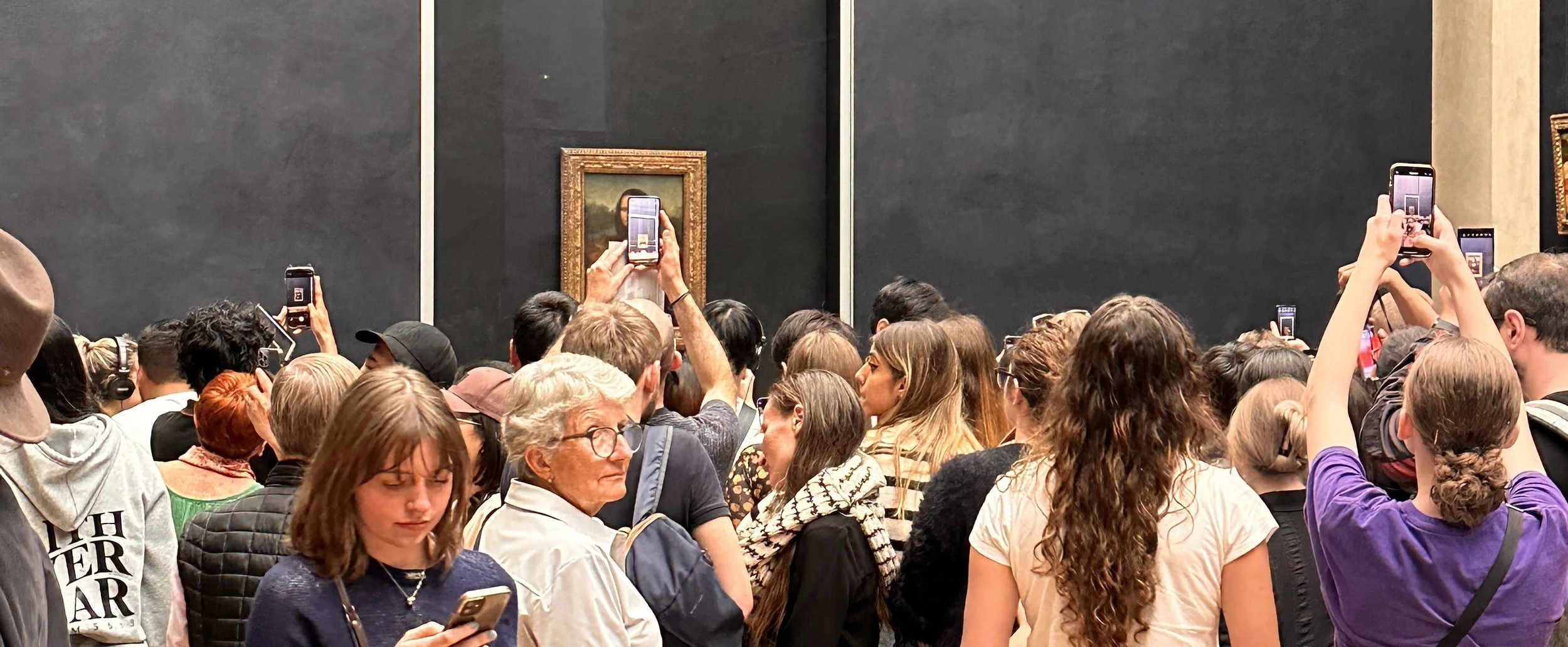Ingres is reputed to have said that he could paint a nude with only mud, provided he had a full palette for the background.* Nowhere is this more evident than in La Grande Odalisque (1814), where the cool shades of the background render the odalisque in luxuriant corporeality.
Like most of Ingres' paintings, this one was constructed first as a "grisaille", a neutral-colored sketch draughted directly on the ground of the painting, with charcoal, graphite, and ink. Here, the line could be studied and refined to establish the structure and proportion of the elements of the painting, elements whose perception will be altered when a series of glazes are applied, through a strict and complementary palette. Looking closely, you notice all of the tones of the background reflected in her skin, as are their complements. Some are there. Some are only implied by the proximity of the velvet against her gold skin. She could well have been painted in mud, against such a rich background.
Much of the effect of the painting is achieved not only in her pose, with its gaze, the curious matter of who is looking at whom, but in the way Ingres warps our view through the exaggeration of line. Her right arm stretches to her elbow over her hip, drawing our eye to her most prominent feature. Her left elbow nearly touches the left side of the frame as her right foot reaches to the other side. Her body commands the full space of the painting. She is turned slightly, beckoning us, into a void as dark as night.
While much is made of Ingres' use of line, it is the psychological persuasion of his color, with all of its emotional suggestions, mysterious interrelationships, and unavoidable allusions, that always gets me.
I stood gazing at this painting at the Louvre for nearly forty minutes. No one came by. I was surprised. Then I looked into the gallery next door and realized where everybody was.
*I have no idea where this quote came from. My Uncle, a classical painter, mentioned it to me one day, and it made perfect sense. As the Italians say, se non e vero debessere - if it's not true, it should be.

